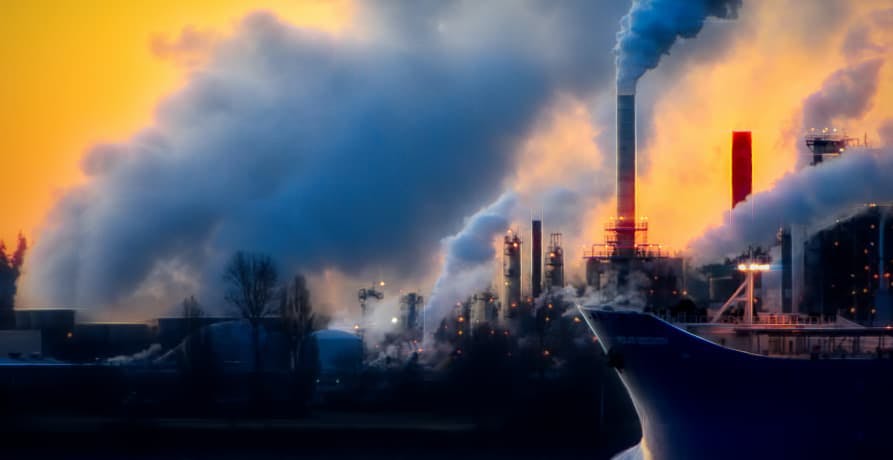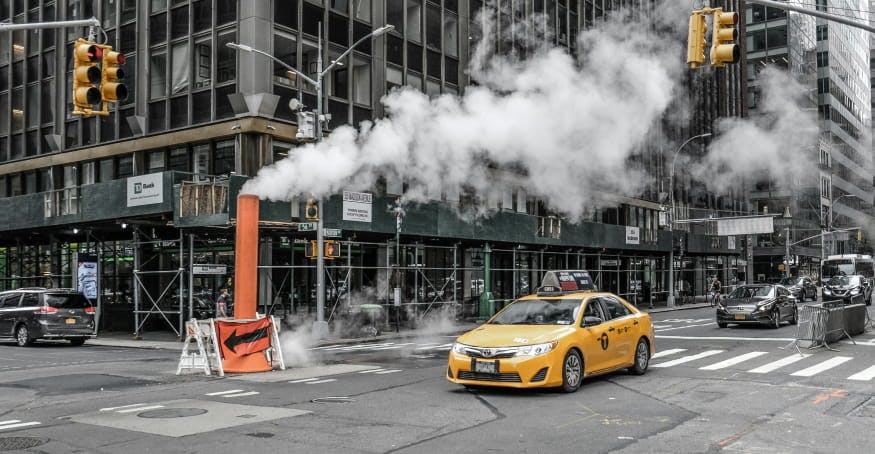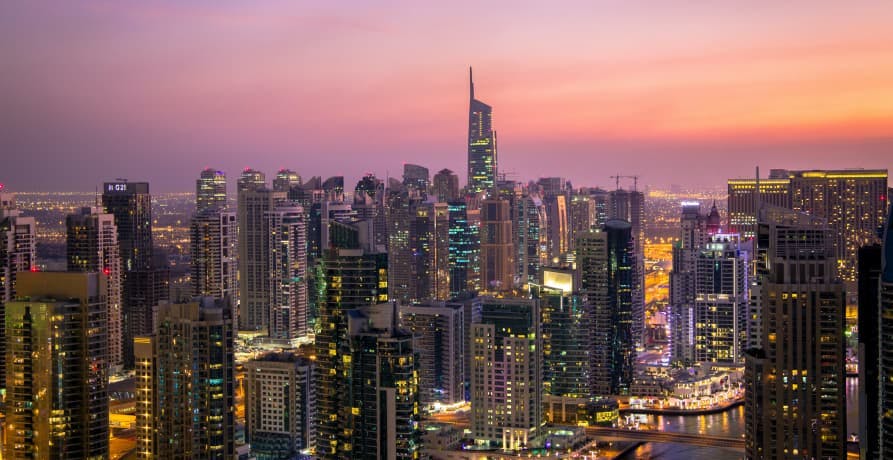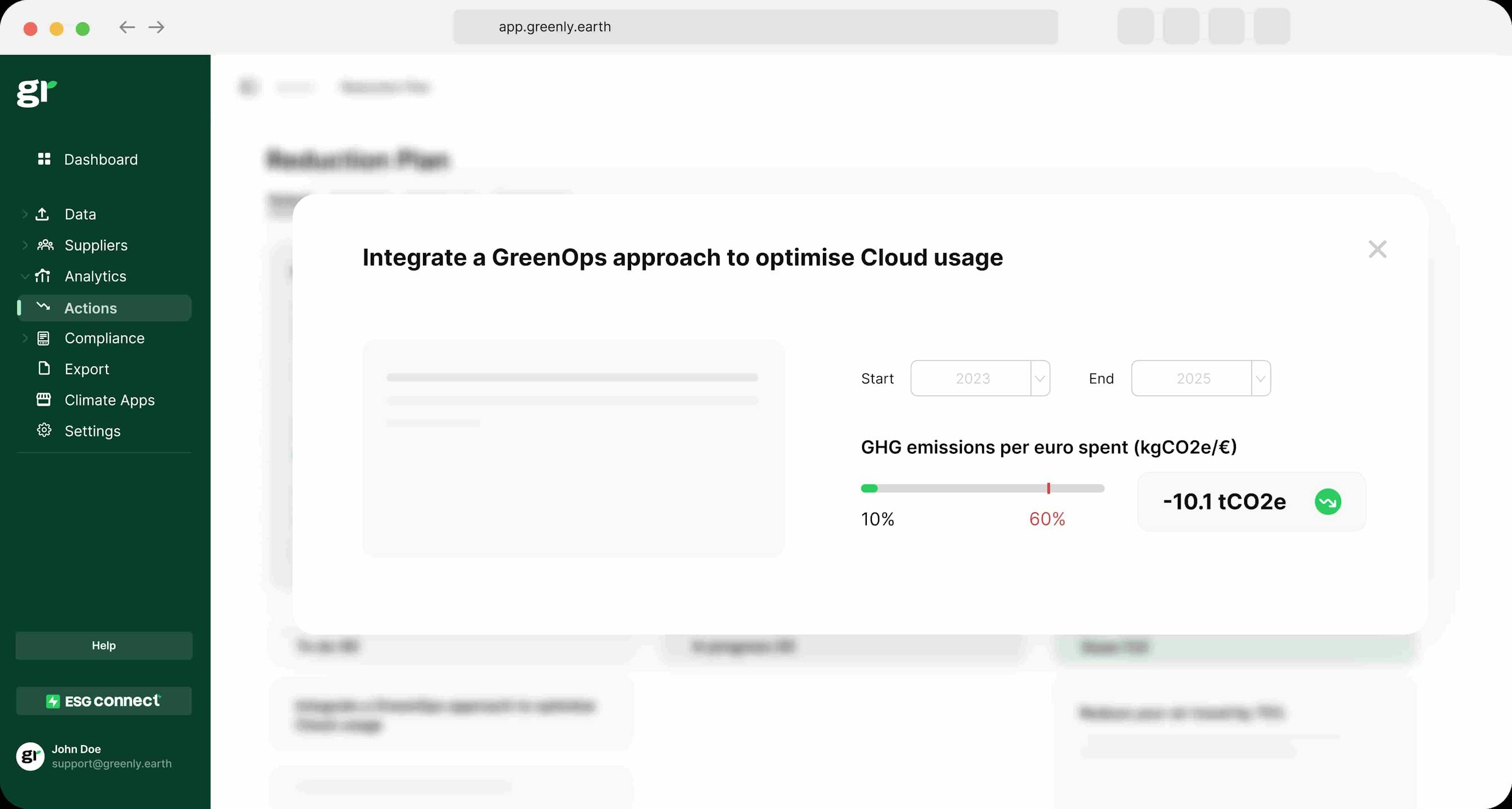ESG / CSR
Industries
What is the Air Quality Index?



Many people may not realize that some of the most harmful pollutants there are in the world exist in the atmosphere, better known as air pollution which is calculated by air quality index – or AQI for short.
Air quality index is becoming an important tool to help measure the quality of the air and the harmful effects that air pollution poses, given many wildfires and subsequent wildfire smoke have been occurring as a result of global warming and increased human activity.
What is the air quality index, how does air quality data work, why is it important in today’s society as climate change progresses, and how can air quality index be improved?
What is the air quality index and how does it work?
The air quality index is a method to report the daily air quality to communicate how polluted it is in a certain area. Ultimately, the air quality index is beneficial because it can help prevent people with increased health risks from exposing themselves to poor air quality and suffering from the consequences of air pollution.
5 Major Air Pollutants
The AQI, or Air Quality Index, works by determining the health effects someone may have after a few hours to a few days of being exposed to excessively polluted air. In addition to this, the Environmental Protection Agency (EPA) helps to calculate the Air Quality Index (AQI) with the help of the five major pollutants regulated in the Clean Air Act:
- ground-level ozone
- particle pollution
- carbon monoxide
- sulfur dioxide
- nitrogen dioxide
👉 Ground-level ozone and airborne particles are the two pollution which are most detrimental to human health and safety in the United States – as these two major pollutants can elicit more serious health effects and can easily raise a health concern for sensitive groups.

How is the air quality index measured?
Air Quality Index (AQI) is measured with the help of the EPA on a numerical scale ranging from 0 to 500 – with lower numbers demonstrating better air quality and higher numbers correlating to worse air quality.
💡 The lower the number is, the more there is little or no risk to experiencing the negative health effects of pollutants such as sulfur dioxide, carbon monoxide, and more.
Air Quality Index (AQI) Chart
| AQI Range | Air Quality Category | Health Implications |
|---|---|---|
| 0-50 | Green = Good | Air quality is fine and does not pose a health risk. |
| 51-100 | Yellow = Moderate | Air quality is fair, but there could be some pollutants that could prove sensitive for some people. |
| 101-150 | Orange = Unhealthy for Certain or Susceptible People | Those sensitive or susceptible to air pollution may have side effects, but the general public isn’t as likely to be affected. |
| 151-200 | Red = Unhealthy | People in good health may feel the effects of the current air quality; sensitive people may have serious effects. |
| 201-300 | Purple = Very Unhealthy | Emergency health warnings may be necessary as air quality starts to affect the majority of the population. |
| 301-500 | Maroon = Hazardous | Health alerts are crucial as everyone is prone to experience severe health side effects. |
👉 Think of the air quality monitoring like the stadiometers used at the amusement park for people to measure their height. The taller someone is, the higher they stand on the stadiometer – just like the Air Quality Index. The higher the number on the “ruler” or scale for AQI value, the worse the current air pollution is and the more cause for concern in terms of public health.
How does the AQI chart work?
Air Quality Index levels that are above 100 are concerning to the general public – as it starts to have a serious impact on vulnerable groups of people: such as those who are pregnant, children, those with pre-existing health conditions, and the elderly.
👉 The Air Quality Index (AQI) is split into six, color coded categories to help make it easier for people to recognize Air Quality Index faster and take the necessary precautions to protect themselves from poor air quality.

Why is air quality index important?
The Air Quality Index (AQI) is important because it is the primary method used to communicate the current air quality to ensure the public remains informed of the current levels of air pollution.
However, there are more reasons besides being a means of communication why the Air Quality Index is important. For instance, the Air Quality Index can help people to understand why they have developed new allergies or health circumstances by learning about the concentration of pollutants in the atmosphere where they live. This can help people learn which medications and precautions to take to protect themselves from poor air quality in the future.
💡As a result, the Air Quality Index can help raise awareness on the importance of seeking to improve the air quality in the United States.
How does air quality data help in the fight against climate change?
Unbeknownst to most, the Air Quality Index can also serve as a tool to understand the impact of our daily human activities on pollution. This is because a high Air Quality Index is often a result of rising greenhouse gas emissions. Therefore, the Air Quality Index can encourage us to become more sustainable and develop innovative ways to reduce our carbon footprint.
Lastly, the Air Quality Index can serve as numerical data to persuade policymakers and public health agencies to develop new, up-to-date environmental policies. In other words, old environmental legislation will not be effective in a world where 70,000 wildfires occur every year. Documented proof of poor air quality may help to send government and other officials to the edge to pass legislation that could actually work to help improve poor air quality.
💡 Air Quality Index (AQI) can help to prevent people susceptible to lung or cardiovascular health problems from being exposed in poor air quality for too long.
Think of air quality index in a similar way to people with diabetes that measure their blood sugar before deciding to eat something or not – air quality index works in a similar way as it can help people to monitor their intake of polluted or toxic substances in the air. Just like someone with diabetes and sugar, someone vulnerable to poor air quality doesn’t have to limit their exposure outside entirely – but the air quality index can help them to avoid being outside when air pollution is at its worst.
👉 Ultimately, the Air Quality Index is imperative to spread awareness, encourage governments to create stronger environmental legislation to improve the current air quality, and to protect the health of Americans.

Why was the Air Quality Index (AQI) in New York City alarming?
In June 2023, wildfire smoke took over the New York City skyline as a result of wildfires in Canada that same year. This led to record-breaking air pollution, with New York City recording some of the worst air quality across the world during its smoggy week in summer 2023.
Here are some reasons why the Air Quality Index in New York City was concerning:
- Amount of Fine Particles in the Air – A smoky NYC skyline saw an AQI that exceeded 400, which is far beyond the "healthy" air quality data – meaning that the air was filled with numerous fine particles which could cause people to experience health effects.
- Health Effects of Long-Term Exposure – These conditions lasted in NYC for several days, making the city (home to around 8 million people) unhealthy for sensitive groups as it made them more susceptible to effects such as chest pain, difficulty breathing, throat irritation, and even heart disease. Furthermore, residents of the city reported other respiratory issues – such as eye irritation and increased risk to asthma.
- Impact to Groups Unusually Sensitive – The air quality forecast in NYC during June 2023 made almost everyone sensitive to air pollution, as emergency conditions were sent out to millions of New Yorkers to advise that outdoor activities, such as school sports and public events – were canceled or postponed. This demonstrated how even young, healthy resdients of a vibrant city such as New York can remain vulnerable to the effects of climate change – as it can have an impact on your personal life.
NYC Response to Wildfire Smoke
The New York State Department and New York City officials advised all residents to use masks and stay indoors as much as possible, which then inspired public awareness campaigns which highlighted the negative impacts of remaining exposed to wildfire smoke for too long.
👉 Furthermore, the New York State Department released a study in June 2023 after the wildfire smoke on its impact on people with asthma to pinpoint the dangerous effects of climate-change induced weather.
💡 Ultimately, the wildfire smoke in a location as reputable as NYC illustrated the need to further dedicate ourselves to environmental conservation – as the event demonstrates the growing frequency of weather-related impacts as a result of climate change.

What are some places in the world with the best and worst air quality index?
Unfortunately, mass production and the spike of the industrial revolution have resulted in most major cities across the globe falling subject to a poor rating on the Air Quality Index. However, that being said – there are some cities that have exceptionally poor air quality.
Places with the worst air quality (Worst AQI)
Here are a few of the world’s cities with the worst Air Quality Index:
Delhi, India
With the population of the metro area of this bustling Asian city totaling to almost 33 million people, Delhi has some of the worst air quality in the world – with an Air Quality Index of 202. This puts Delhi in the purple (or very unhealthy) range for the Air Quality Index.
Santiago, Chile
Ranking 125, or orange (unhealthy for vulnerable people) on the Air Quality Index, this South American city has relatively low air quality according to the Air Quality Index.
Dubai, United Arab Emirates
Home to new architecture and a melting pot of cultures, this middle eastern city ranks 117, also orange (unhealthy for vulnerable people) on the Air Quality Index – large in part from excessive vehicle emissions.

Places with the best air quality (Best AQI)
However, not all cities struggle to prevent toxic particles and pollutants from making a home in their sky.
Here's a list of cities with some of the best air quality in the world:
Zurich, Switzerland
It isn’t just all the fresh mountain air that makes Switzerland smell so crisp, and though it certainly doesn't hurt – Zurich and Switzerland as a whole have some of the best air quality in the world in part due to the city's strong efforts to reduce pollution from vehicles. This has been done by ensuring public transportation such as trams are always provided.

👉 Did you know that all tourists staying in hotels in Switzerland are always offered a complimentary public transportation pass? This is how the country encourages even travelers to reduce their carbon footprint and improve air quality.
Reykjavik, Iceland
Secluded in between mainland North America and Europe, this city often makes use of its own geothermal energy to prevent the need to use finite resources such as fossil fuel – giving Reykjavik an Air Quality Index of 15.

Wollongong, Australia
South of Sydney and east of Canberra, this Australian city has an Air Quality Index of 50, making it one of the least polluted cities in the world with good air quality.
Is there a way that cities like Dubai, Delhi, and Santiago can improve their Air Quality Index?
How can air quality index be improved?
Besides with stricter environmental legislation and national programs such as the Clean Air Act – there are many things that people can do in their daily lives to help improve the Air Quality Index in their area.
For starters, one of the best things that people can do is to drive their cars less – opting to bike, walk, or use public transportation can make a big difference. If this isn’t feasible where you live, investing in an electric car or other kinds of electric vehicles may be worthwhile – and under Biden’s Inflation Reduction Act of 2022, you’ll be subject to a tax reduction. This can also help to reduce gas consumption, which is another culprit of a poor rating on the Air Quality Index.
👉 A poor rating on the Air Quality Index is often a result of excessively using vehicles that make use of gasoline.
Ultimately, the Air Quality Index serves as a great tool to tell us the current quality of the air outside and to protect people from getting sick – but how we move forward with that data and strive to improve the Air Quality Index for current and future generations is the most useful thing we could all do with that data.
What about Greenly?
If reading this article the Air Quality Index (AQI) has made you interested in reducing your carbon emissions to further fight against climate change – Greenly can help you!
The Air Quality Index (AQI) U.S. is just one of the many environmental policies, methods, and tools being developed to take control of climate change. Check out our legislation tracker here to see which rules your company has to adhere to.
Greenly can help you make an environmental change for the better, starting with a carbon footprint assessment to know how much carbon emissions your company produces.




